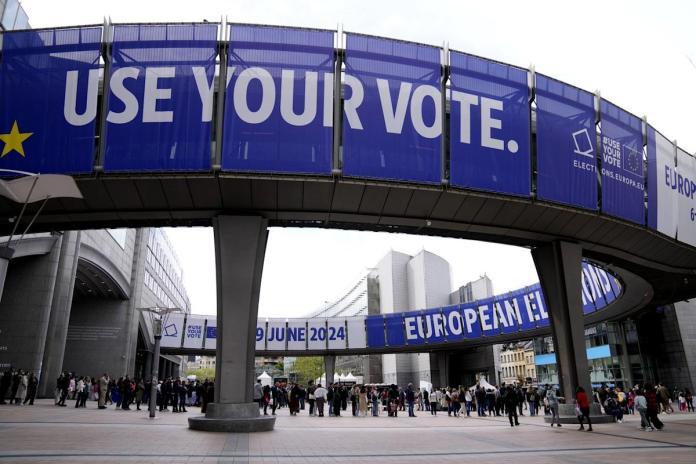European Union Elections: Battling Disinformation and AI Threats
European Union Elections Threatened by Online Disinformation
BRUSSELS (AP) — As voters in the European Union prepare to elect lawmakers for the bloc’s parliament, concerns are mounting over the impact of online disinformation on the democratic process. Experts warn that artificial intelligence could play a significant role in spreading fake news and disrupting the upcoming elections in the EU and other countries.
With 360 million people in 27 nations set to choose 720 European Parliament lawmakers from Thursday to Sunday, the surge in fake news and anti-EU disinformation in member countries has raised alarms. The use of new AI tools makes it easier than ever to create misleading or false content, with Russia being a primary suspect in these efforts.
Josep Borrell, the EU’s foreign policy chief, highlighted the threat posed by Russian state-sponsored campaigns to manipulate information and deceive voters. The use of social media and AI-assisted operations has made it challenging to combat these disinformation campaigns, especially during election times.
Instances of election-related disinformation have already been reported in various EU countries, including Spain, Poland, and Slovakia. Fake websites, bogus bomb threats, and AI-generated audio recordings impersonating candidates have all been used to spread false information and manipulate public opinion.
The goal of these disinformation campaigns is to disrupt democracy and deter voters from participating in the elections. European authorities are taking steps to combat these threats, with the EU implementing new laws to hold platforms accountable for spreading disinformation and imposing fines on those who fail to comply.
Social media companies like Meta Platforms, TikTok, and Google are also stepping up their efforts to protect election integrity by setting up fact-checking hubs, tightening policies on AI-generated content, and working with authorities to combat abuse at scale.
As the EU elections approach, the battle against online disinformation continues to intensify. With the rise of generative AI and deepfake technology, the challenge of identifying and debunking false information has become more complex. Authorities and tech companies are working together to safeguard the democratic process and ensure that voters are not misled by deceptive content.

















